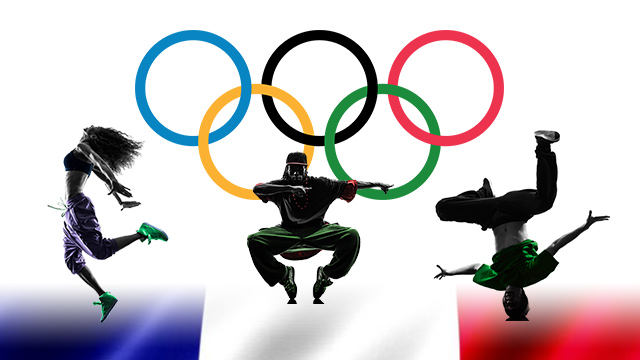Breakin’ in the 2024 Paris Olympics: A Double-Edged Sword for the Culture
In today's global Breakin’ scene, the focus has largely shifted to its inclusion in the 2024 Paris Olympics. The final Olympic Qualifier Series in Budapest has concluded, announcing the top 16 Bboys and 16 Bgirls who will make history as the first Breakin’ athletes in the Olympics.

The global Breakin’ community has reacted positively to this milestone, though it wasn't always this way. A decade ago, many Bboys now participating in their countries' Olympic Breakin’ programs were vehemently opposed to the idea of Breakin’ becoming a sport. The culture has matured since then, but there remain purists who are against its Olympic debut.
In this blog, we will explore both perspectives on the effects of Breakin’ joining the Olympics.
Positive Effects
Increased Exposure and Popularity
The Olympics significantly raise a sport's profile, attracting new fans, participants, and media attention. Breakin’ had a mainstream explosion in the '80s and another resurgence in South Korea. Many expect a third wave, with the Olympics as the catalyst.
Financial Benefits
Olympic inclusion often brings increased funding from governments, sponsors, and other organizations. For the first time, national Breakin’ teams are receiving government funding, hiring coaches, and providing salaries to Bboys and Bgirls.
Development and Growth
The Olympics can spur the development of infrastructure, training programs, and youth initiatives, promoting grassroots growth. Countries previously indifferent to Breakin’ are now creating programs and infrastructures to train Breakin’ athletes. Some schools have even included Breakin’ in their curriculums, providing jobs for Bboys and Bgirls as instructors.
Professional Opportunities
Olympic athletes often gain more opportunities for endorsements and professional contracts. Top Bboys and Bgirls are now sponsored by major corporations, earning close to six-figure salaries.
Standardization and Regulation
Olympic inclusion can lead to improved standardization and regulation, resulting in higher quality competitions and better governance. National competitions and Olympic Qualifier Series events now rival or exceed the production values of prestigious events like BC One world finals and the late R16 World Championships. Judging technology is improving, and even local jams are seeing enhanced production value.

Negative Effects
Increased Pressure and Commercialization
The pressure to perform on the world stage can be immense, and commercialization may prioritize profitability over the sport's integrity. This concern is heightened if those in charge are not from the Breakin’ culture. Although Breaking for Gold organizers come from the culture, many Bboys and Bgirls remain cautious of the World Dance Sport Federation, primarily a ballroom dance organization.
Loss of Identity
To meet Olympic standards, Breakin’ may undergo changes that dilute its traditional aspects and cultural significance. The focus on solo Breakin’ over crews and the adaptation to large stage events have already shifted the dance's traditions. Originality, footwork, and traditional Bboy styles are often overlooked.
Resource Allocation
Resources may be diverted from grassroots and developmental levels to support elite athletes and teams, potentially harming the sport’s long-term growth. In some countries, grassroots funding has diminished as budgets are reallocated towards Olympic preparation. Annual events that sustained the Breakin’ culture have suffered as a result.
Intense Competition for Spots
The high competition to qualify for the Olympics may discourage new or less-experienced participants. Breakin’ is becoming less accessible as a social dance learned on the streets, with top breakers now trained in studios and clubs, often starting young with parental support. This trend has led to a new generation of breakers with advanced skills but less access and connection to the culture's roots from marginalized street kids.

Temporary Popularity
Some sports experience a temporary spike in interest that fades after the Olympics, leading to boom-and-bust cycles in attention and funding. Breakin’ might see a third wave of mainstream popularity, similar to the '80s and mid-2000s in Korea. However, like previous waves, it risks being exploited and abandoned once its novelty wears off.
Conclusion
While Olympic inclusion brings significant benefits to Breakin’ in terms of exposure, funding, and development, it also introduces challenges such as commercialization pressures, resource misallocation, and potential loss of cultural identity.

Yes it is obviously a good chance good opportunity but as you mentioned that it may demotivate the new beginners or also the concept of breaking may change like the new generation would only see it as a sport or ra stunt thing.but its duty of every teacher who teach the new beginnner that where we started from what is our root .i myself train with my two students and i am a toprock bboy and so they are but when i look the bboys in row competeing in olympics that thing kinda hurt me thinking i will never make it to there cause everyone is doing crazy powermoves but at the end it is good that we made it to olympics.And i am afraid that this shouldn’t build a wall between olympician and other bboy who just want to live in the culture